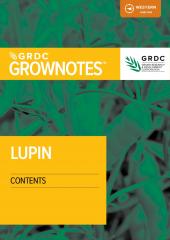Lupinus albus is a ANNUAL growing to 1.2 m by 0.3 m . It is in flower from June to July, and the seeds ripen from August to September. The species is hermaphrodite and is pollinated by Bees.
It can fix Nitrogen.
Suitable for: light and medium soils. Suitable pH: acid, neutral and basic soils and can grow in very acid soils.
It cannot grow in the shade. It prefers moist soil.
An easily grown plant, succeeding in any moderately good soil. It prefers a light acid soil but tolerates adverse conditions. Requires a sunny position. The white lupin is sometimes cultivated, especially in S. Europe, for its edible seed and also as a green manure crop. There are some named varieties, many of which have bitter seeds that contain toxic alkaloids and require leaching before they are eaten but some sweet varieties have also been developed. These sweet varieties are perfectly wholesome as food for humans and include the cultivar 'Kiev'. There is some confusion between this species and L. nanus. A deep rooting plant. This species has a symbiotic relationship with certain soil bacteria, these bacteria form nodules on the roots and fix atmospheric nitrogen. Some of this nitrogen is utilized by the growing plant but some can also be used by other plants growing nearby. When removing plant remains at the end of the growing season, it is best to only remove the aerial parts of the plant, leaving the roots in the ground to decay and release their nitrogen.
HabitatsDisturbed ground on acid soils.HabitatsCultivated Beds
HabitatsCultivated Beds
Resources
GrowNote Lupin West 0 Table Contents

WESTERN
JUNE 2018CONTENTS
LUPIN
iv
GROWNOTES
WESTERN
JUNE 2018Contents
Contents LUPIN
https://grdc.com.au/__data/assets/pdf_file/0032/366098/GrowNote-Lupin-West-0-Ta…GrowNote Lupin West 0 Table ContentsGrowNote Lupin West 0 Table Contents
WESTERN
GRDC
JUNE 2018
CONTENTS
LUPIN
iv
GROWNOTES
WESTERN
JUNE 2018
Contents
Contents LUPIN
Introduction
Minor pests
- Beet western yellows virus yellows
Callosobruchus maculatus
Clover yellow vein virus
Colletotrichum acutatum
Cuscuta campestris
Delia platura
Ditylenchus africanus
Edessa meditabunda
Fusarium oxysporum f.sp. phaseoli
Halotydeus destructor
Heterodera glycines
Heterodera goettingiana
Hypera postica
Lettuce necrotic yellows virus
Meloidogyne ethiopica
Peanut stripe virus
Phytophthora cambivora
Sitona lineatus
Thrips angusticeps
Verticillium dahliae
